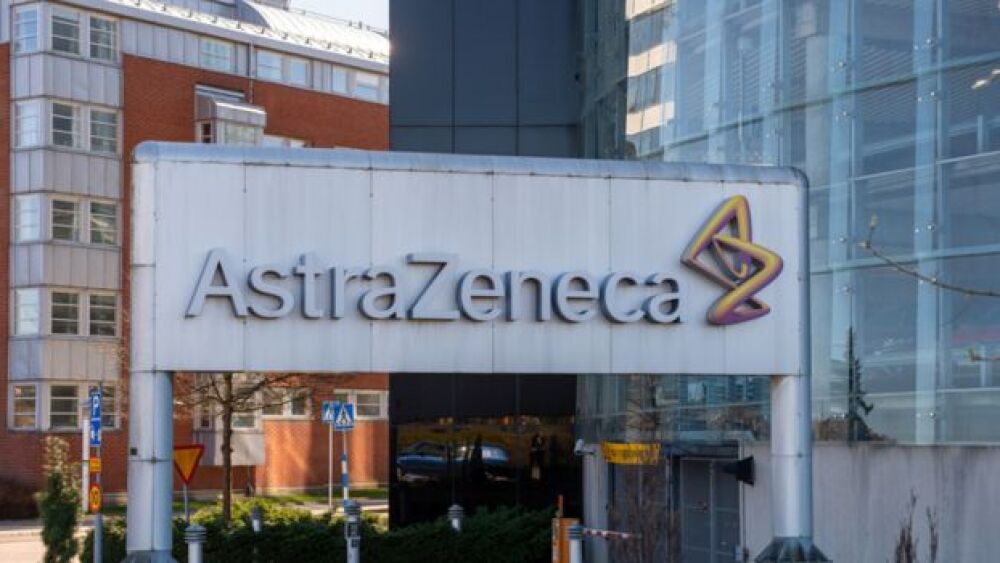In the latest example of big pharma entering AI collaborations or using AI-based tools, AstraZeneca’s deal with Absci will aim to produce an oncology candidate.
Pictured: AstraZeneca sign in Gothenburg, Sweden/iStock, Wirestock
AstraZeneca will collaborate with the Vancouver, WA-based AI development company Absci to forge a therapeutic candidate in oncology. According to a Monday filing with the SEC, Absci will see AstraZeneca pay $247 million, with plans to use artificial intelligence to devise a treatment for an unspecified oncology indication.
According to the SEC filing, Absci will net an upfront payment, research and development funding and milestone payments that will total $247 million. Absci is also entitled to royalties on future sales of the product.
“Absci’s newest partnership with AstraZeneca further validates our first-of-its-kind zero-shot generative AI model designed to create new and improved antibody therapeutics, including for previously untreatable diseases. We’re proud to work closely with AstraZeneca to leverage our AI to bring novel treatments to oncology patients,” Absci CEO Sean McClain said in a statement emailed to BioSpace.
While neither company gave details on what oncology target AstraZeneca is going after, Absci will use its AI platform, which uses generative AI to find candidates and wet-lab technologies to help validate what the AI finds, according to the company’s website. Absci said its platform can generate propriety data by measuring millions of protein-protein interactions to train AI models and find antibodies.
Absci has seen its stock price shoot up on Monday morning, increasing over 30% since the opening bell.
“This collaboration is an exciting opportunity to utilize Absci’s de novo AI antibody creation platform to design a potential new antibody therapy in oncology,” Puja Sapra, AstraZeneca’s senior vice president of biologics engineering and oncology targeted delivery, in a release.
This is not the first foray into AI partnerships for AstraZeneca. In September, the U.K.-based pharma, through its rare disease division Alexion, entered into a multi-target agreement with Verge Genomics to discover and produce drugs against targets in neurodegenerative and neuromuscular diseases. Alexion made a $42 million upfront payment in the deal with Verge and committed to a total of up to $840 million, including milestone payments and future royalties.
Other prominent names in the pharma industry have also been making deals in AI. Pfizer has been scaling up talent to put more development into AI and machine learning research tools, while Johnson & Johnson is also making investments in its in-house AI efforts.
Merck KGaA in September entered AI-centered discovery collaborations with U.K.-based companies BenevolentAI and Exscientia. These deals are aimed at finding candidates in oncology, immunology and neurology.
Tyler Patchen is a staff writer at BioSpace. You can reach him at tyler.patchen@biospace.com. Follow him on LinkedIn.






